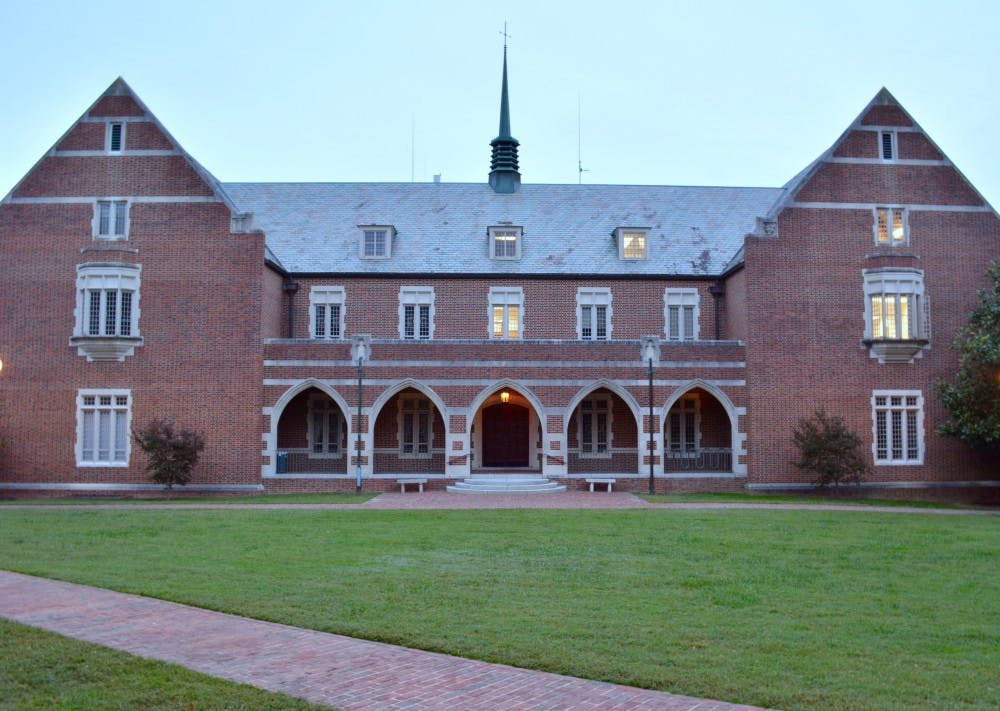The Department of Music is implementing a revised policy that caps non-music student access to private lessons starting next semester.
All UR students were previously guaranteed up to eight semesters of private lessons with no added fee. But now, Dr. Andy McGraw, chair of the music department, said students who are not a part of the music department will be limited to two semesters of lessons.
The new policy prioritizes private lessons for music majors and minors, music scholarship recipients and those participating in ensembles. Students outside of the music department who have taken two semesters of music lessons will be placed on a waiting list.
McGraw said that the new policy is the result of increasing interest in private lessons combined with a limited budget.
“I want to say yes to everybody;” McGraw said. “The faculty wants to say yes to everybody; the budget is finite.”
McGraw said that the department has received negative student feedback on the new policy. Some students argue that limiting access to lessons undermines the purpose of a liberal arts education.
“We're a liberal art school, so we encourage students to try out different things and develop ourselves in different areas and different skills,” senior Lyla Van Hoven said. “I think it's important for a business major, like myself, to take music. It's a chance to do something that is a different part of your brain.”
There is also concern that the new restrictions could negatively impact student’s desire to study music. Senior music major Pearce Burlington said that the new policy could decrease engagement in the department, which was one of the goals of prioritizing music majors and minors.
“They have a lot of money and scholarships and stuff that they can give out to people, but only if they’re majors are minors,” Burlington said. “And there's a lot of participation in lessons and ensembles, but not nearly as many people who take the academic classes.”
For those students who participate in both lessons and classes, McGraw said how close students are to minoring in music.
“We're starting to realize that not very many of them understand how close they are to almost sleepwalking into accidentally minoring in music because it’s not a very onerous minor,” McGraw said.
McGraw said the root of this new policy can be traced back to the late 2000s when Richmond’s cost of attendance took a substantial increase between 2006 and 2008. In response to student, parent, and faculty feedback due to the increase, Richmond cut additional fees for private lessons, opting instead to include these lessons in the price of tuition.
Enjoy what you're reading?
Signup for our newsletter
Students have approached the music department willing to pay additional fees to override the two semester cap, but McGraw has turned down these inquiries due to the ethical issues he said they create.
“Some students can pay, some students can't, and that was the problem with the original system,” McGraw said. “Now, if people really, really want lessons, they can always arrange to take lessons privately.”
Because students take private lessons for a half-unit a semester, questions are raised among students and faculty about the motivations for electing to take private lessons.
Van Hoven said many students take private lessons to meet general education credit requirements but their dedication falls short.
“They're not practicing;” she said. “They're just doing it to get a credit and an easy A.”
McGraw acknowledged this concern, but pointed to students willing to pay additional fees in order to take lessons.
“They're not doing it for [general education requirements] at that point,” McGraw said. “They're just doing it because they love it, which is the purest reason to engage in music and why it really deserves to be approved.”
For non-music students who want to continue taking private lessons beyond two semesters, one of their options is to navigate the waitlist.
According to McGraw, the department is still holding for the registration of first-year students intending to major or minor in music and students receiving a music scholarship, so there won’t be any motion on the waitlist until the first week of classes.
Students are also able to join a faculty-led ensemble to earn academic credit and gain priority in private lesson registration. UR faculty members lead instrumental, vocal, jazz, global, and popular music ensembles which are open for all students, regardless of major.
Contact news writer Marshall Lehman at Marshall.Lehman@richmond.edu
Support independent student media
You can make a tax-deductible donation by clicking the button below, which takes you to our secure PayPal account. The page is set up to receive contributions in whatever amount you designate. We look forward to using the money we raise to further our mission of providing honest and accurate information to students, faculty, staff, alumni and others in the general public.
Donate Now



